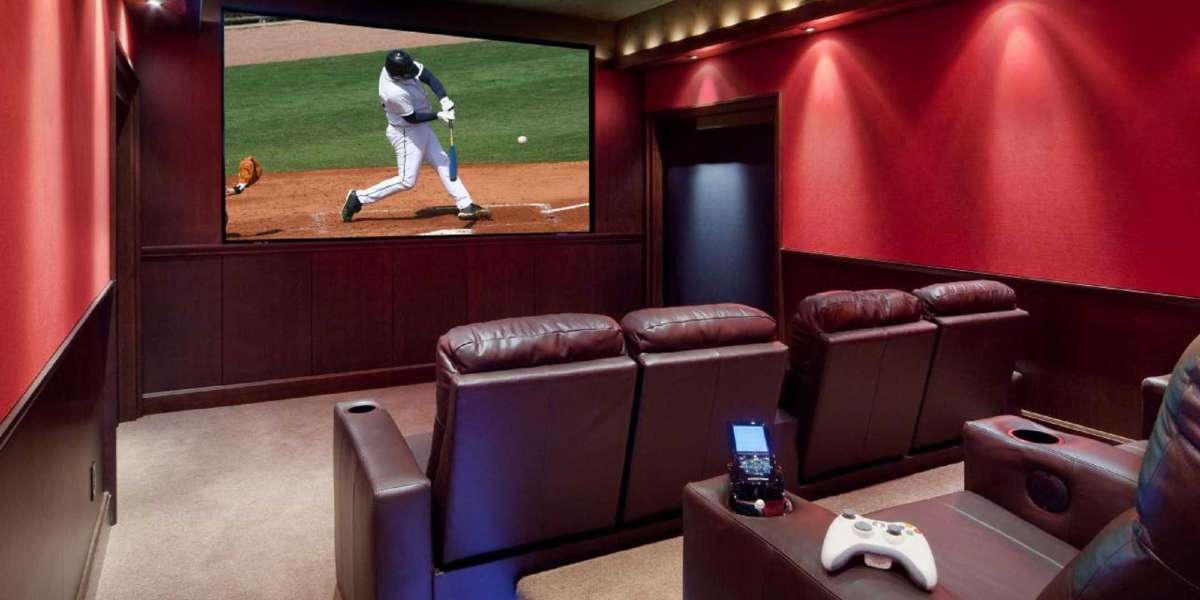In today's fast-paced world, comfort at home is more than just a luxury; it's a necessity. As we spend an increasing amount of time indoors, the systems that regulate our indoor environments play a pivotal role in our daily lives. Enter HVAC System—those unsung heroes working tirelessly behind the scenes to keep us comfortable year-round. Whether it’s sweltering summer days or frigid winter nights, these systems not only manage temperature but also influence air quality and energy efficiency.
What Is An HVAC-System?
An HVAC-System is an integrated solution designed to manage heating, ventilation, and air conditioning within a building. It works to create a comfortable indoor environment by regulating temperature and improving air quality. Heating functions typically involve furnaces or heat pumps that generate warmth during colder months. These systems can run on various energy sources, including gas, electricity, or even solar power.
Ventilation plays a crucial role in maintaining fresh air circulation. It eliminates stale air while introducing outdoor airflow—essential for preventing indoor pollutants from accumulating. Air conditioning units cool the space when temperatures rise. They utilize refrigerants to absorb heat from indoors and release it outside, ensuring a refreshing atmosphere during hot weather. Together, these three components form an essential framework for modern living spaces, significantly impacting comfort levels and overall wellbeing in homes today.
The Evolution Of HVAC-Systems
The journey of HVAC-Systems began long before modern technology. Ancient civilizations, like the Romans, utilized aqueducts to create a form of heating. They mastered early central heating with their hypocaust system. As history progressed, so did the need for better climate control. The 19th century saw significant advancements with the introduction of steam heating systems. These innovations laid the groundwork for what we recognize today.
In the mid-20th century, cooling became just as crucial as heating. Air conditioning transformed residential comfort and changed how homes were designed. Today’s HVAC-Systems are marvels of engineering. They emphasize energy efficiency and environmental sustainability while providing customized comfort levels in homes across various climates. Enhanced controls allow homeowners to monitor their environments seamlessly through smart technologies. Such evolution reflects society's growing awareness of energy consumption and indoor air quality—a true testament to innovation in home comfort solutions.
The Importance Of HVAC-Systems in Modern Homes
HVAC-Systems are essential for maintaining a comfortable living environment in modern homes. They regulate indoor temperatures, ensuring warmth during chilly winters and coolness on sweltering summer days. Beyond comfort, these systems contribute to better air quality. Efficient filtration removes dust, allergens, and pollutants from the air we breathe. This is vital for households with allergies or respiratory issues.
Moreover, HVAC-Systems help preserve home integrity. By managing humidity levels, they prevent mold growth and structural damage caused by excess moisture. Energy efficiency is another crucial aspect. Advanced HVAC technologies reduce energy consumption while keeping your space cozy. This not only lowers utility bills but also lessens environmental impact. In an era where health and sustainability matter more than ever, having a reliable HVAC-System isn't just beneficial—it's indispensable for every homeowner striving for an optimal living experience.
Energy Efficiency Benefits Of HVAC-Systems
Energy efficiency is a key advantage of modern HVAC-Systems. These advanced technologies are designed to optimize power consumption while maintaining comfort levels in your home. By utilizing variable-speed motors and smart thermostats, these systems adjust their operation based on real-time needs. This not only reduces energy waste but also keeps your indoor environment cozy year-round.
Investing in an efficient HVAC-System can significantly lower utility bills. Homeowners often notice reductions as high as 30% in heating and cooling costs, providing both short-term savings and long-term benefits. Moreover, many new models come with Energy Star certifications, ensuring that they meet strict requirements for efficiency. Choosing one of these systems not only helps the planet but also enhances the value of your property. Incorporating regular maintenance practices further boosts efficiency by preventing common issues that could lead to increased energy use.
Cost Savings with An Efficient HVAC-System
Investing in an efficient HVAC-System can significantly reduce your energy bills. These systems use advanced technology to regulate temperature, saving you money over time. Avoid the hidden costs of outdated units that struggle to keep up with demand. An efficient system operates smoothly, requiring less energy for heating and cooling.
Moreover, many modern HVAC options come with programmable thermostats. This feature allows homeowners to set schedules according to their daily routines, optimizing usage and minimizing waste. Additionally, some utility companies offer rebates or incentives for upgrading to high-efficiency models. Taking advantage of these programs can further enhance cost savings. Long-term maintenance is another factor; a well-maintained system runs efficiently longer, reducing repair costs and extending its lifespan. Investing upfront pays off down the line through lower operational expenses and reduced environmental impact.
How To Choose the Right HVAC-System for Your Home
Choosing the right HVAC-System for your home can feel overwhelming. Start by assessing your space. Consider the size, layout, and insulation of your rooms. A professional assessment can help determine the capacity you need for optimal efficiency.
Assess Your Home's Specific Needs
Consider factors like your home's size, layout, insulation quality, number of windows, and local climate. Determine your heating and cooling requirements and identify any specific comfort issues like hot or cold spots.
Evaluate Different HVAC-System Types
Research the various types of HVAC-Systems available (e.g., central air conditioners and furnaces, heat pumps, ductless mini-splits) and understand their pros and cons regarding energy efficiency, upfront costs, operating costs, and suitability for your home's structure.
Consider Energy Efficiency and Costs
Look for systems with high SEER (Seasonal Energy Efficiency Ratio) for cooling and AFUE (Annual Fuel Utilization Efficiency) for heating 1 to minimize energy consumption and lower utility bills. Factor in both the initial purchase price and long-term operating and maintenance costs.
Consult with HVAC Professionals
Obtain quotes and advice from multiple licensed and reputable HVAC contractors. They can assess your home's needs, recommend appropriate system sizes and types, explain installation processes, and provide information on warranties and potential rebates or incentives.
Maintenance Tips for Optimal Performance
Regular maintenance is key to keeping your HVAC-System running smoothly. Start by changing the air filters every one to three months. Clogged filters reduce airflow and efficiency. Next, schedule annual professional inspections. Technicians can identify potential issues before they become major problems. They’ll check refrigerant levels, inspect ducts, and clean essential components. Keep outdoor units clear of debris like leaves or dirt. Ensure there’s at least two feet of clearance around the unit for proper airflow.
Don’t ignore strange noises or unusual odors coming from your system. These could signal underlying issues that need attention right away. Consider investing in a programmable thermostat to optimize energy use based on your schedule. It helps maintain comfortable temperatures without unnecessary strain on the system throughout different seasons.
Common Issues with HVAC System and How to Fix Them
HVAC System can encounter various issues that may disrupt their efficiency. One common problem is inadequate heating or cooling. This often stems from dirty air filters, which restrict airflow. Regularly changing filters can solve this issue. Another frequent concern is strange noises coming from the unit. Rattling or grinding sounds might indicate loose components or a failing motor. Inspecting and tightening parts can help silence these disturbances.
Frequent cycling is another sign of trouble. If your system turns on and off too often, it could be due to an incorrectly sized unit or thermostat problems. Consulting with a professional for proper assessment ensures optimal performance. Leaks in ductwork may lead to energy loss and uneven temperatures throughout the home. Sealing ducts properly prevents unwanted air escape, enhancing efficiency significantly. Regular maintenance checks are key to catching these issues early before they escalate into more significant repairs.
The Role of Technology in Advancing HVAC-Systems
Technology has revolutionized HVAC-Systems, making them smarter and more efficient. Today’s units are equipped with advanced sensors that monitor temperature, humidity, and even air quality in real time. These smart features allow for precise control of indoor climates. Homeowners can adjust settings from their smartphones or tablets, ensuring comfort at all times. This level of convenience was unimaginable just a few years ago.
Additionally, integration with home automation systems enhances energy efficiency. Communication between devices leads to optimized performance based on occupancy patterns and weather conditions. Innovations like variable refrigerant flow technology provide tailored cooling or heating to individual rooms rather than treating the entire space uniformly. Moreover, predictive maintenance tools alert homeowners about potential issues before they escalate into costly repairs. These technologies not only improve system longevity but also enhance overall household comfort by maintaining ideal living conditions effortlessly.
Smart Home Integration With HVAC-Systems
Smart home integration has revolutionized how we interact with HVAC-Systems. Today’s technology allows homeowners to control their heating and cooling from anywhere, using just a smartphone. Imagine adjusting your home's temperature while at work or on vacation. Smart thermostats learn your habits and preferences, automatically optimizing comfort levels. They can even suggest energy-saving settings based on usage patterns.
Voice-activated assistants enhance this experience further. Simply ask your device to warm up the house before you arrive home, and it responds instantly. Moreover, smart sensors detect changes in room occupancy. This ensures that energy isn’t wasted heating or cooling empty spaces. Integration with other smart devices creates a seamless environment where lighting and HVAC work together for optimal comfort and efficiency. The future of home living is here, making our lives easier while promoting sustainability through advanced technology in HVAC-Systems.
HVAC-Systems: Enhancing Comfort, Health, And Efficiency in Your Home
HVAC-Systems play a crucial role in creating a comfortable living environment. They regulate temperature and humidity, ensuring that you feel cozy during cold winters and cool in the sweltering heat of summer. Beyond comfort, these systems significantly contribute to your health. Proper ventilation removes indoor pollutants and allergens, promoting better air quality. This is especially important for those with respiratory issues or allergies.
Efficiency is another key aspect of modern HVAC solutions. With advancements in technology, many units now use less energy while maintaining optimal performance levels. This not only lowers your utility bills but also reduces your carbon footprint. An effective HVAC-System enhances overall well-being by creating a balanced atmosphere at home. It encourages relaxation and productivity alike, making it an essential investment for any household aiming for harmony between comfort and efficiency.
Maximizing Your Home’s Potential with Advanced HVAC Technology
Advanced HVAC technology offers homeowners unparalleled benefits. Smart thermostats and zoned heating and cooling systems allow for precise temperature control in different areas of your home. This means no more fighting over the thermostat settings. The integration of IoT devices enhances efficiency, enabling remote monitoring and adjustments from your smartphone. Imagine coming home to a perfectly conditioned space, all because you programmed it while at work.
Upgrading to energy-efficient models can also significantly reduce utility bills. Many new systems use variable speed motors that adjust airflow based on demand, minimizing waste. Additionally, advanced filtration options improve indoor air quality by reducing allergens and pollutants. A healthier living environment is essential for well-being. Investing in these technologies not only elevates comfort but also increases property value. Modern buyers are often drawn to homes with efficient HVAC-Systems that promise sustainability and convenience.
Conclusion
Understanding the role of HVAC System is essential for any modern homeowner. They are not just about heating and cooling; they create a comfortable living environment year-round. With advancements in technology, these systems have become energy-efficient heroes. They help reduce utility bills while maintaining optimal indoor air quality. Investing in the right HVAC-System can significantly enhance your home’s value and comfort. Regular maintenance ensures longevity and peak performance for years to come.
FAQs
What does HVAC stand for?
HVAC stands for Heating, Ventilation, and Air Conditioning. It refers to the technology used for indoor environmental comfort.
How often should I service my HVAC System?
It's recommended to service your HVAC System at least once a year, ideally before summer or winter when it's needed most.
What are signs that my HVAC-System needs repair?
Common signs include unusual noises, inconsistent temperatures throughout the home, increased energy bills, or strange odors coming from the vents.
Can an inefficient HVAC-System affect my health?
Yes! Poorly maintained or outdated systems can circulate dust, allergens, and pollutants which may lead to respiratory issues or exacerbate allergies.
| Related Business Listings |
| Contact Directory |
| Local Business Profiles |






